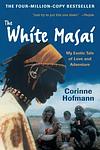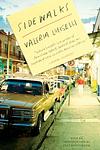The Greatest Mexican, Swiss "Nonfiction" Books Since 1980
Click to learn how this list is calculated.
This list represents a comprehensive and trusted collection of the greatest books. Developed through a specialized algorithm, it brings together 300 'best of' book lists to form a definitive guide to the world's most acclaimed books. For those interested in how these books are chosen, additional details can be found on the rankings page.
Genres
Countries
Date Range
Reading Statistics
Click the button below to see how many of these books you've read!
Download
If you're interested in downloading this list as a CSV file for use in a spreadsheet application, you can easily do so by clicking the button below. Please note that to ensure a manageable file size and faster download, the CSV will include details for only the first 500 books.
Download-
1. Grid Systems In Graphic Design by Josef Müller-Brockmann
This book is a seminal guide to graphic design and typographic composition, focusing on the use of grid systems as a foundational tool for ensuring visual coherence and hierarchy across various design projects. It provides designers with a methodical approach to organizing text and images in a clean, logical, and aesthetically pleasing manner. Through systematic arrangement, the grid serves as an essential framework that can be applied to a wide range of design work, from print media to digital interfaces. The book delves into the principles, applications, and benefits of grid systems, offering practical advice, examples, and clear illustrations to help designers harness the power of grids to create effective, impactful visual communications.
-
2. Mexico: Biography of Power by Enrique Krauze
This book offers a comprehensive exploration of the political and social evolution of Mexico, tracing the country's history from the pre-Columbian era to the late 20th century. It delves into the lives and legacies of Mexico's influential leaders, examining how their exercise of power shaped the nation's identity and destiny. The narrative weaves through the complexities of Mexico's revolutions, reforms, and relationships with external powers, providing a deep understanding of the forces that have defined the country's path and the characters who have stood at the helm of its journey. Through a blend of biography and historical analysis, the work presents a vivid portrait of a nation's struggle for sovereignty, stability, and self-definition.
-
3. The White Masai by Corinne Hofmann
The book is a true story of a Swiss woman who, while on holiday in Kenya, falls in love with a Samburu warrior. Defying her family, friends, and cultural norms, she decides to leave her life in Switzerland behind to marry him and live in his remote village. The narrative delves into her challenging and transformative journey as she adapts to a vastly different culture, learns the local customs, and navigates the complexities of her interracial marriage and the community's expectations. Her story is one of love, resilience, and the pursuit of happiness in the face of extraordinary cultural differences.
-
4. Tell Me How It Ends: An Essay in 40 Questions by Valeria Luiselli
This book is a powerful exploration of the critical issue of child immigration, focusing on the experiences of Central American children who arrive in the United States without their parents. The narrative is structured around 40 questions that the author, as a court interpreter, must ask the children to help determine their fate. The book provides a deeply personal and moving account of the human stories behind the ongoing debate over immigration and asylum laws.
-
5. The Cult Of Emptiness The Western Discovery Of Buddhist Thought And The Invention Of Oriental Philosophy by Urs App
This book delves into the fascinating journey of how Buddhist thought was introduced and interpreted in the West, tracing the origins back to the encounters between European intellectuals and Asian cultures. It explores the notion of "Oriental Philosophy" as a construct of Western imagination, shaped by the translations and interpretations of texts that were often misunderstood or taken out of context. The author critically examines the romanticization and misconceptions that led to the creation of a mystical and exotic Eastern philosophy, highlighting the impact of these interpretations on both Western perceptions of Buddhism and the development of modern philosophy. Through a meticulous historical analysis, the book reveals the complex dynamics of cultural exchange, intellectual curiosity, and the quest for spiritual understanding, shedding light on the enduring fascination with the concept of emptiness and the cultural constructs that have emerged around it.
-
6. Sidewalks by Valeria Luiselli
"Sidewalks" is a collection of essays that delve into the themes of urban spaces, memory, and identity through the lens of the author's experiences in different cities around the world. The narrative weaves together personal reflections, literary criticism, and philosophical musings, offering a unique perspective on the ways in which the physical landscapes of cities intersect with the internal landscapes of our minds. Through her explorations of sidewalks, cemeteries, and other urban spaces, the author invites readers to consider the profound connections between place, history, and the self, making this work a thoughtful meditation on the nature of belonging and the transient essence of life.
Reading Statistics
Click the button below to see how many of these books you've read!
Download
If you're interested in downloading this list as a CSV file for use in a spreadsheet application, you can easily do so by clicking the button below. Please note that to ensure a manageable file size and faster download, the CSV will include details for only the first 500 books.
Download




